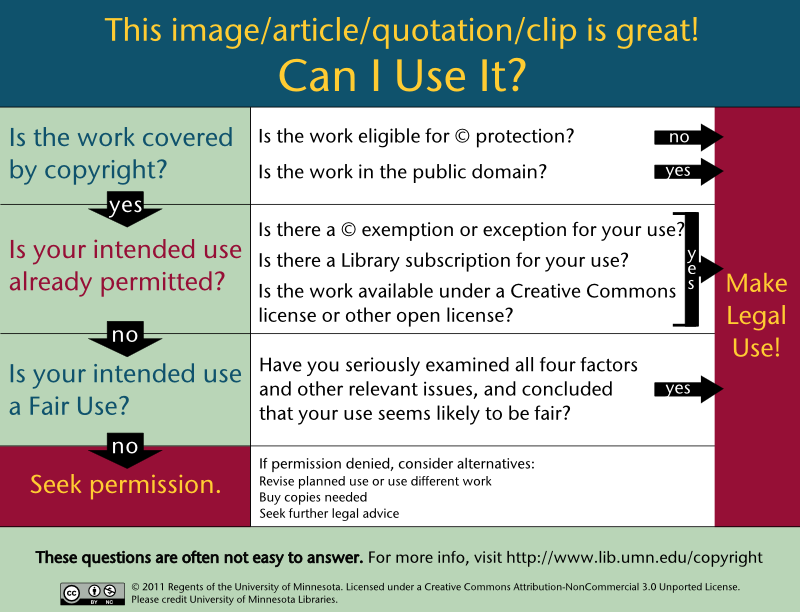What is Copyright?
Copyright is a legal right, grounded in the United States Constitution, that gives the owner of copyrighted work the exclusive right to:
- Reproduce (make copies of ) the work; and
- Modify or prepare derivative works based on the work; and
- Distribute the work in any format by sale, publication, license, rental, or for free; and
- Publicly perform or display the work; and
- Authorize others to exercise some or all of those rights
How Long does Copyright Last?
It depends.
Copyright applies for a limited term. The length of that term depends on when the work was first created, whether or not it has been published, and whether the work was first published in the US or abroad.
When the copyright term in a work expires, the work loses copyright protection and enters the public domain.
To determine the copyright term for all other works, consult the Cornell University chart Copyright Term and the Public Domain in the United States.
What If I Want to Use a Copyrighted Work?
United States federal Copyright law grants the creator of an original work a number of exclusive rights, but obtaining permission should not be the first step. When solving a copyright problem, ask these questions:
- Is the work protected by copyright?
- If yes, does an exception to copyright apply (e.g. is it in the public domain)? Consult Copyright Term and the Public Domain in the United States. If yes, then you can use the work.
- If not, does fair use apply? If yes, then you can use the work.
- If not, and the work is protected by copyright, seek permission to use the work.

